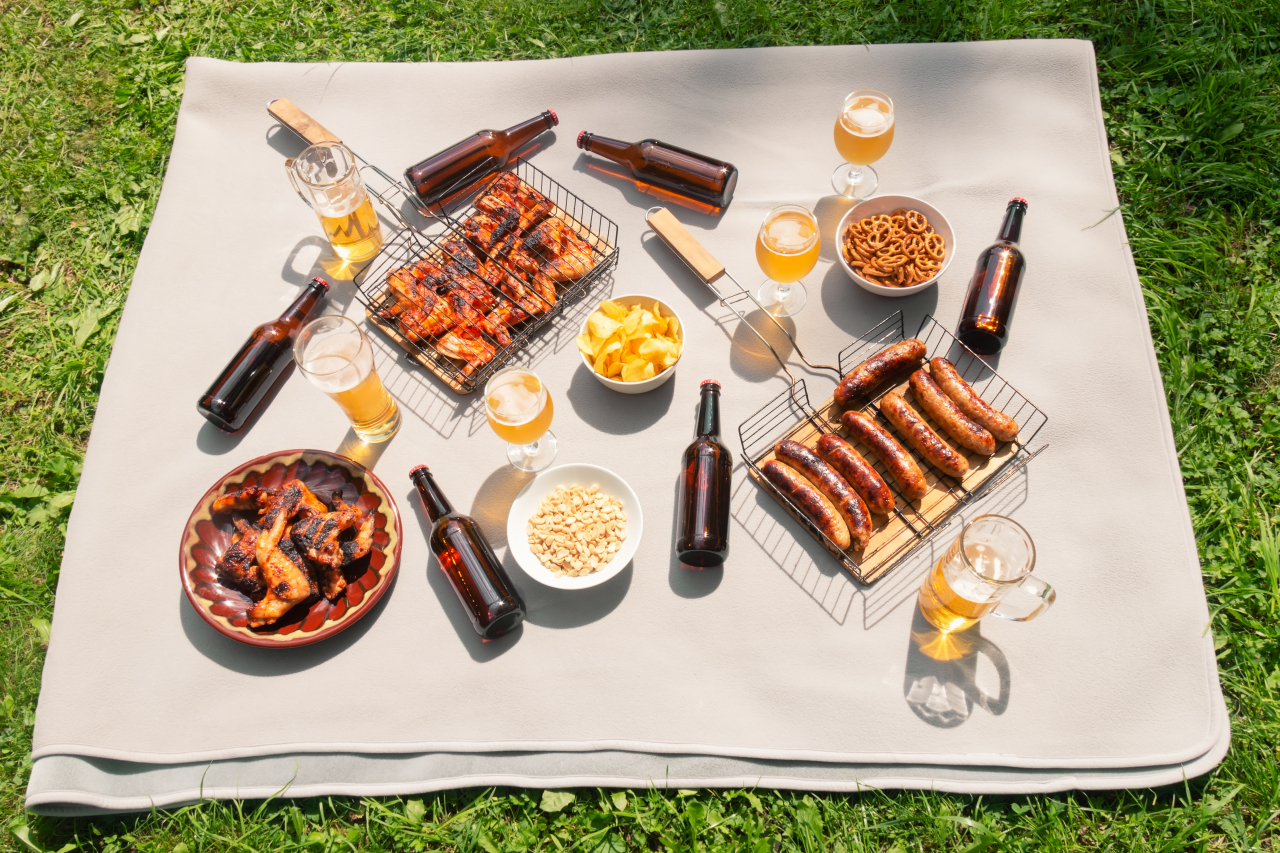Public alcohol consumption faces fines starting in New Year
By Choi Jeong-yoonPublished : Jan. 5, 2024 - 15:39

"Chimaek," a beloved combination of fried "chicken" and "maekju" (beer), could no longer be allowed in public parks across South Korea.
Local governments in South Korea have started banning the consumption of alcohol in public spaces, and fines of up to 100,000 won ($76) could now be imposed.
The measures were announced in 2023, with municipalities providing a grace period for a ban on public drinking. However, starting from the New Year, drinking alcohol in most places designated as alcohol-free zones will be subject to fines, as the grace period has ended.
Gwangjin-gu in eastern Seoul began cracking down on alcohol consumption at a children's park on the first day of the New Year, according to local authorities. Anyone found drinking alcohol or possessing an open bottle in a no-drinking zone will be fined 100,000 won.
Neighboring Jungnang-gu passed a similar ordinance, imposing a fine of 50,000 won to those drinking at Myeonmok Station Plaza. Goyang in Gyeonggi Province has designated 148 children's parks and 196 playgrounds as no-drinking zones, where a fine of up to 50,000 won will be imposed if an individual is spotted drinking alcohol.
A total of 22 parks directly operated by the Seoul Metropolitan Government are also looking to implement limitations. "The ordinance to expand the scope of the alcohol crackdown to the Han River (parks), (and areas near) rivers, streams, government offices and hospitals is pending at the city council after it was submitted last year," said a city official.
Seoul City Government has put the plan of banning alcohol at areas next to the Han River on hold, largely due to possible backlash and complaints from citizens who love the carefree atmosphere of the Han River parks,
Cities' initiatives to limit public drinking aligns with revisions to the National Health Promotion Act in June 2021, which gave legal power to authorities to designate no-drinking zones. Since last year, local governments have been proposing related ordinances. However, the scope of the prohibited areas and the level of fines vary from region to region.





![[KH Explains] No more 'Michael' at Kakao Games](http://res.heraldm.com/phpwas/restmb_idxmake.php?idx=644&simg=/content/image/2024/04/28/20240428050183_0.jpg&u=20240428180321)













![[Herald Interview] Mistakes turn into blessings in street performance, director says](http://res.heraldm.com/phpwas/restmb_idxmake.php?idx=652&simg=/content/image/2024/04/28/20240428050150_0.jpg&u=20240428174656)
